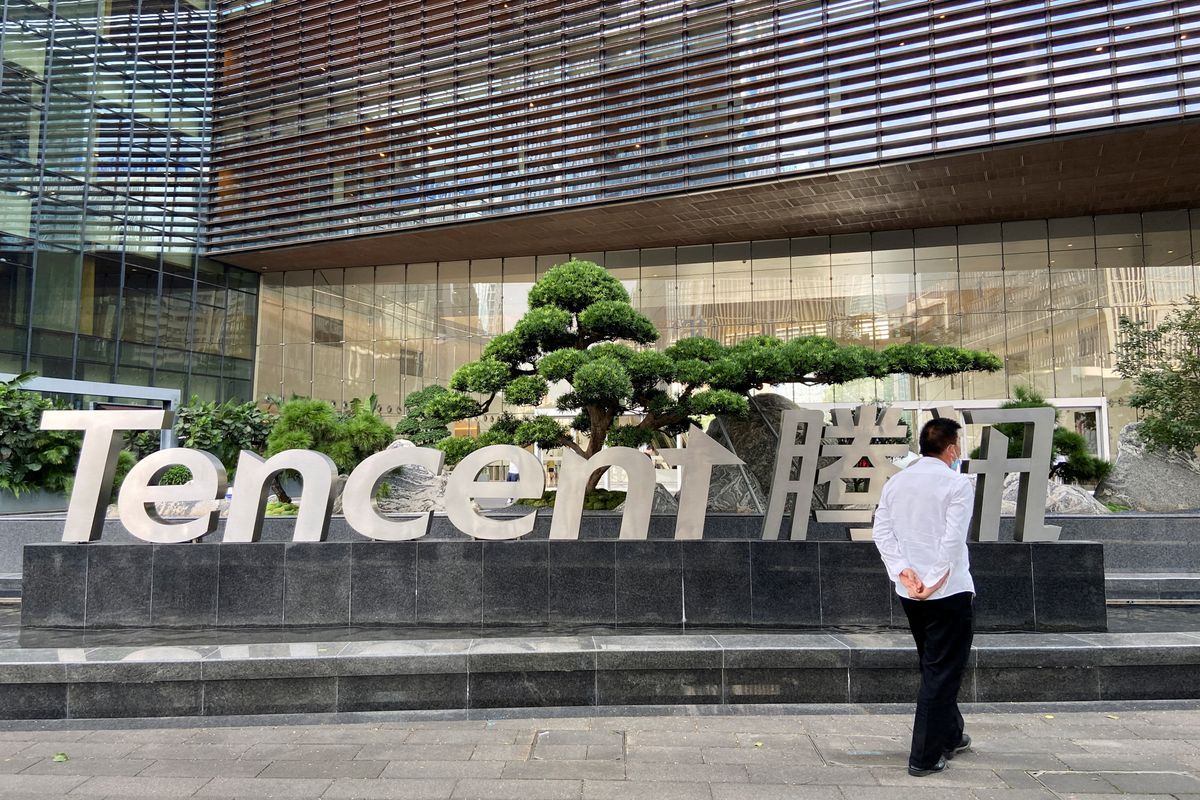Tencent plans to unveil a proprietary AI model this year
Chinese tech giant Tencent is throwing its hat into the AI ring.

A few minutes every morning is all you need.
Stay up to date on the world's Headlines and Human Stories. It's fun, it's factual, it's fluff-free.
The backstory: Ever since the release of OpenAI’s ChatGPT large language model last November, artificial intelligence (AI) has been developing at full speed around the world. So fast, in fact, that some of the tech’s own creators and industry insiders have called for things to slow down a bit before it gets out of hand.
Companies worldwide are developing AI products in a race to be the best in the field, and governments everywhere are looking into just how to regulate the technology and put restrictions on some of its riskier uses. But it’s undeniable that AI is coming full throttle and will change the world as we know it.
More recently: Chinese firms are jumping on the AI trend, too. Baidu was one of the first Chinese giants to release an AI tool to rival popular ChatGPT in March with its chatbot Ernie Bot. Although the first version was a bit disappointing (and on a limited release), the company announced in June that its latest version, Ernie 3.5, had beaten "ChatGPT in comprehensive ability scores" and performed better than "GPT-4 in several Chinese capabilities."
In April, China's SenseTime Group joined the race after releasing a handful of AI-powered tools, including a chatbot and image generator. A demo of its chatbot "SenseChat" showed it doing things like writing code, writing emails and telling a story prompted by the user. Alibaba had also launched its own large language model, called Tongyi Qianwen, around the same time.
Then, in August, Alibaba announced it would open it’s AI-model up to third-party developers, which put it in direct competition with other tech leaders in the space, like Meta.
The development: Chinese tech giant Tencent is throwing its hat into the AI ring. It just announced plans to unveil a proprietary AI model later this year that it thinks will be among the best in China. This will create some competition for other Chinese pioneers in the field, like Baidu and SenseTime. The announcement came as the company reported an 11% revenue increase for the second quarter, which was lower than expected but called “solid” by its CEO, Pony Ma.
Some people have seen Tencent to be kind of behind in the AI field, mainly because it hasn’t said much about its efforts. But the tech firm has now said its experimentation in the AI field goes way beyond what current bots like ChatGPT are capable of. Execs said the company’s progress in the field was going very well, and it’s been testing the model, called Hunyuan, on things like search, gaming, fintech and cloud computing. Tencent also said the tech might even be useful for things like marketing and advertising.
Key comments:
“During the second quarter of 2023, we sustained a solid revenue growth rate, along with a gravitation towards high-quality revenue streams with better margins,” said Tencent co-founder and CEO Pony Ma. “We will continue to drive innovation, including through generative AI, where we are providing a library of models to our partners via our Tencent Cloud Model-as-a-Service (MaaS) offering, as well as refining our proprietary foundation model.”
“It’s among the top leading foundation models produced in China,” said Martin Lau, Tencent’s president, on a second-quarter earnings call Wednesday. “We are very relentlessly working on the upgrade and iteration to prepare it for launch at some point of time in the latter part of this year.”
"The Tencent Hunyuan large model, completely developed by ourselves from scratch, has now entered the application testing phase within the company," Tencent said in a statement sent to Reuters.
“China is very much ahead of the game in terms of self-regulating AI within their own nation-state,” said US Senator Mark Warner to Politico.
“The way China approaches AI regulation will likely be consistent with its approach to regulating other areas of prominent technology, such as internet or social media, where it operates strict censorship to control the flow of information,” Citi analysts said in a research note earlier this week.




Comments ()